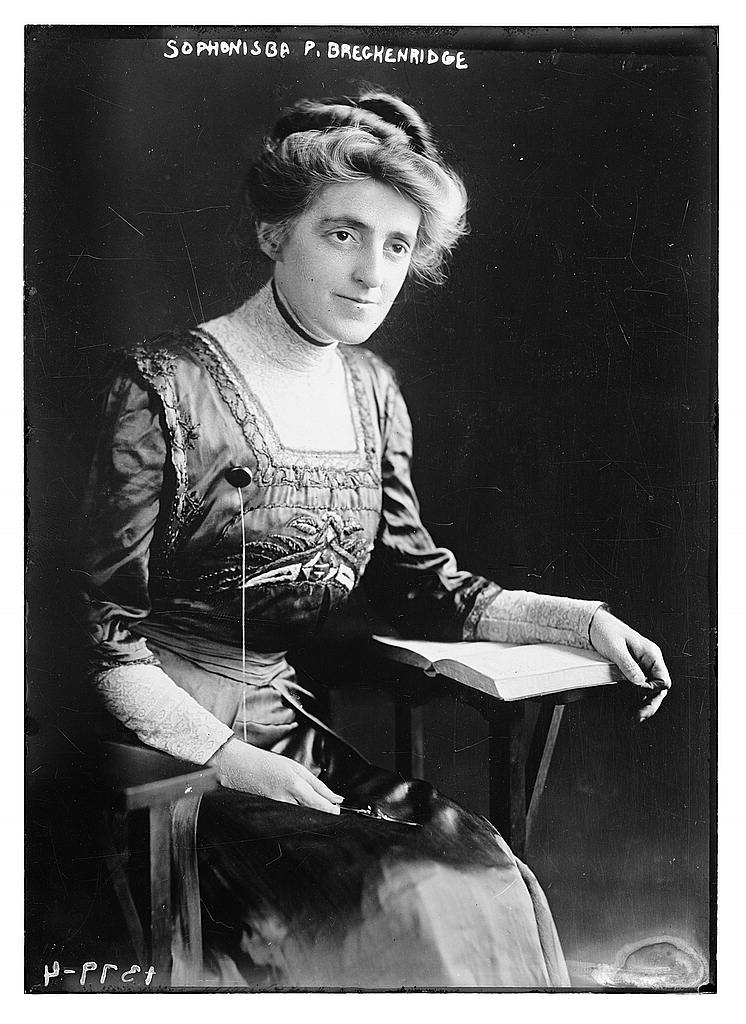 |
Her biographer, Anya Jabour, has said this: “In a way, her career was a sort of checklist of women’s activism in twentieth‐century America. For Breckinridge, all her activities worked toward the same end: creating a just and equal society for all.”
She achieved so much against the strong headwinds of the 19th century. She attended the future University of Kentucky at the age of 14 but could not receive a degree as a woman, so after four years, she went to Wellesley. She was the first woman admitted to the Kentucky bar in 1895 though her father ran ads in the newspaper to make it clear that she was NOT a partner in his firm. She could get few clients, so moved on to Chicago to work for Marion Talbot, the Dean of Women at the University of Chicago. She was the first woman to earn a PhD in political science and economics at Chicago in 1901. In 1904, she became the first woman to graduate from the Law School. Every male professor assumed she would not stay in academics. It must have been something of a triumph when she served a term as dean of the college in the 1920s and eventually was tenured as a full professor.
She studied how public policy and social reforms could address the appalling conditions for child laborers, working women, immigrants, and African Americans, joining Hull House and pushing the university to create the School of Social Service Administration (now Crown SSA after the big donor) to study what policies would effect real change. She pushed forward on every front she could, including influencing New Deal programs like the Social Security Act and the Fair Labor Standards Act.
And yet, she isn’t well-known. She was unassuming and willing to work behind the scene to get things done and let others take the center stage. I knew about her because the university named a building after her and now there's a full biography.
Image: Library of Congress, http://hdl.loc.gov/loc.pnp/ggbain.07524 CALL NUMBER: LC-B2- 1379-4[P&P]
No comments:
Post a Comment